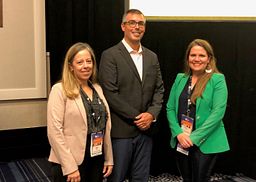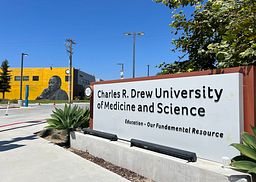PAEA Announces 2020–2021 Don Pedersen Research Grant Recipients
PAEA is pleased to announce the investigators whose research projects will be funded by the 2020-2021 Don Pedersen Research Grants program, which annually funds faculty research projects in PA education and PA workforce issues. After a competitive process and blinded peer-review, the Grants & Scholarship Review Committee has selected the proposals. The awardees are:
- Mirela Bruza-Augatis, MS, PA-C, assistant professor/assistant chair in the Department of Physician Assistant at Seton Hall University
- Bethany Grubb, MPH, MPAS, PA-C, assistant professor/course director, family medicine in the Department of PA Studies at the University of Texas Southwestern School of Health Professions
Bruza’s study, Investigating Potential PA Program Application Barriers for Underrepresented Minorities, is motivated by the extensive data showing that the proportion of underrepresented minority (URM) PA students is not reflective of the racial and ethnic diversity of the U.S. population. Her research question seeks to determine what nonacademic preadmission factors contribute to the likelihood of PA school matriculation among URM or economically disadvantaged PA students. The effect of academic achievement on URM matriculation into PA school has been studied, however, little attention has focused on the potential impact of other preadmission factors. This investigation is particularly timely due to the new ARC-PA Standard A1.11, requiring that PA programs’ sponsoring institutions must demonstrate a commitment to diversity — in part by supporting program recruitment strategies. Bruza hopes her results will assist PA programs in efforts to develop admissions processes that promote URM matriculation. She will draw on her experience coming from an environmentally and economically disadvantaged background, practice history serving underserved populations, and her role as a PA program admissions co-chair to highlight the importance of the matriculation of underrepresented minority PA students into the workforce.
Grubb’s proposed research addresses another timely subject for PA educators. Her study, Tolerance of Ambiguity and the Effects of a Mindfulness Based Stress Reduction Program in Physician Assistant Students seeks to identify correlations between PA students’ levels of tolerance of ambiguity (ToA), burnout, stress, depression, and resilience. Ambiguities are inherent in the practice of medicine. Students experience greater levels of stress moving from the certainty of tests and examinations and transitioning to the flexible thinking and problem solving required in clinical rotations. Data show that increased stress can lead to burnout and is also associated with lapses in professional behavior. By increasing students’ understanding of mindful awareness, she hopes to increase their ToA and provide them with skills needed to self-reflect and increase their capacity for compassion in clinical practice. Additionally, by elucidating the links between ToA and health, Grubb hopes to help faculty understand these stressors and prepare their students to navigate complexity. This research is particularly critical in light of ARC-PA’s new Standard B2.20, which states that, “The curriculum must include instruction about provider personal wellness including prevention of impairment and burnout.” Positive outcomes accruing from her work may inspire other programs to incorporate similar pedagogy into their own curriculum with the goal of graduating PA students who are not only medically competent but also able to exhibit adaptability and flexibility.
Please join us in congratulating our newest Don Pedersen grantees on their excellent work and in thanking Don Pedersen, PhD, PA-C, and his wife, Kathy Pedersen, MPAS, PA-C, for their generous and enduring support for PA researchers. The generous support of the Pedersen family and the PAEA Board of Directors helps to foster the development of PA researchers. A new Don Pedersen Research Grant application cycle will open in the spring.
Professor Bruza encourages her colleagues to apply and notes that she found the advice and expertise of her colleagues were key to her success. After previously applying for the PAEA Research Fellowship, she was open-minded about the application review committee’s feedback, which helped restructure the research proposal to better support the PA profession and her goals. She admits that submitting a successful proposal is not easy and finding a mentor can be challenging, but still encourages future applicants to reach out to potential mentors. Through her outreach, Bruza found a great amount of support, and her mentors became her biggest cheerleaders.
PAEA Research is also in your corner and available to answer questions about how to apply for grants, how to find a mentor, or how to get started on the path to PA research. Find out more at research@paeaonline.org or 703-651-8540.




